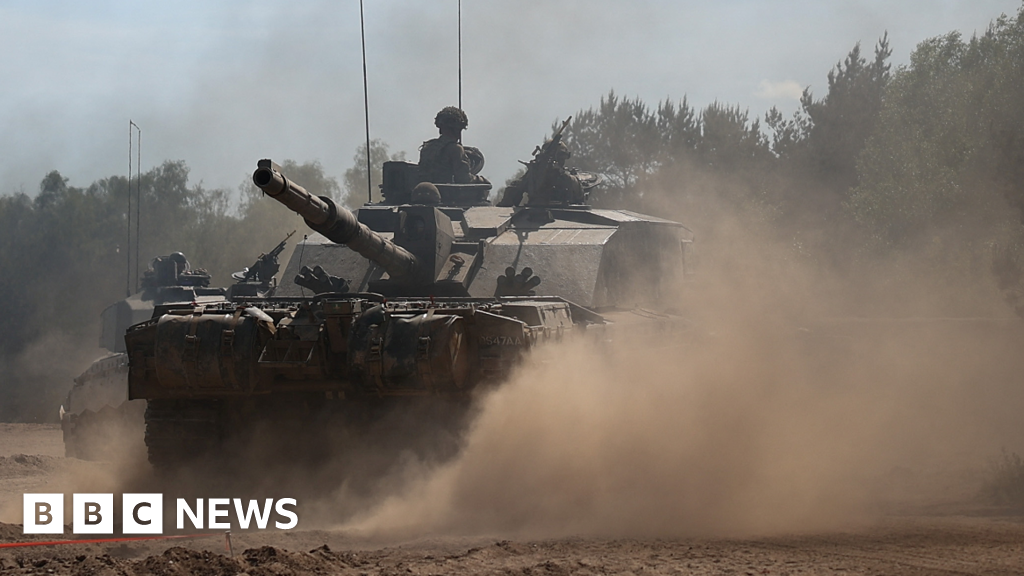UK must be ready for war in three years, says Army head

- by Admin
- July 23, 2024

Britain must be ready to fight a war in three years, the new head of the Army has said.
Gen Sir Roland Walker has warned against a range of threats in what he called an “increasingly volatile” world.
But he said war was not inevitable and the Army had “just enough time” to prepare itself to avoid conflict.
Central to this was doubling the Army’s fighting power by 2027 and tripling it by the end of the decade, he said.
In his first speech in the role on Tuesday, Gen Walker said the UK faced danger from an “axis of upheaval”.
Among the key threats facing the UK in the coming years, highlighted by the general in a briefing, is an angered Russia, which could seek retribution against the West for supporting Ukraine, regardless of who wins the war.
He said: “It doesn’t matter how it ends. I think Russia will emerge from it probably weaker objectively – or absolutely – but still very, very dangerous and wanting some form of retribution for what we have done to help Ukraine.”
He also warned that China was intent on retaking Taiwan, and Iran was likely to pursue nuclear weapons.
He said the threats they posed could become particularly acute within the next three years, and that since the war in Ukraine these countries had created a “mutual transactional relationship”, sharing weapons and technology.
But he said the path to war was not “inexorable” if the UK re-established credible land forces to support its strategy of deterrence to avoid war.
He did not directly appeal for further funding or troops in his speech, describing his force of just over 70,000 regular troops as a “medium-sized army”.
But he urged the British Army to modernise quickly – including focusing on technology like Artificial Intelligence and firepower, rather than numbers.
Eventually, his ambition is for the Army to be able to destroy an enemy three times its own size.
This would mean firing faster and further, he said, helped by learning the lessons from the war in Ukraine.
The general’s speech comes one week after the government launched a “root and branch” defence review to “take a fresh look” at the challenges facing the armed forces.
Launching the review, Defence Secretary John Healey described the current state of the armed forces as “hollowed-out” and said “procurement waste and neglected morale cannot continue”.
There are 75,325 members of the UK’s regular Army forces (excluding Gurkhas and volunteers), according to the latest Ministry of Defence (MoD) figures from April 2024.
That figure has been falling in recent years as recruitment has failed to match retention. The previous Conservative government reduced its target headcount from 82,000 to 72,500 by 2025.
Members of the Nato military alliance have pledged to spend at least 2% of GDP on defence per year by 2024, though several nations are not likely to meet this target.
The UK currently spends 2.3% of GDP on defence. Prime Minister Sir Keir Starmer has previously said the defence review would set out a “roadmap” to the goal of increasing this to 2.5%, but he is yet to put a timeline on this commitment.
The Latest News
-
November 16, 2024Daily horoscope: November 16, 2024 astrological predictions for your star sign
-
November 15, 2024Returning Emma Raducanu helps Great Britain seal spot in BJK Cup quarter-finals
-
November 15, 2024Emma Raducanu overcomes injury hell to hand Great Britain major advantage after Billie Jean King Cup win
-
November 15, 2024Billie Jean King Cup Finals 2024: Emma Raducanu win gives Great Britain lead against Germany
-
November 15, 2024Emma Raducanu returns to action with victory for Great Britain at Billie Jean King Cup





